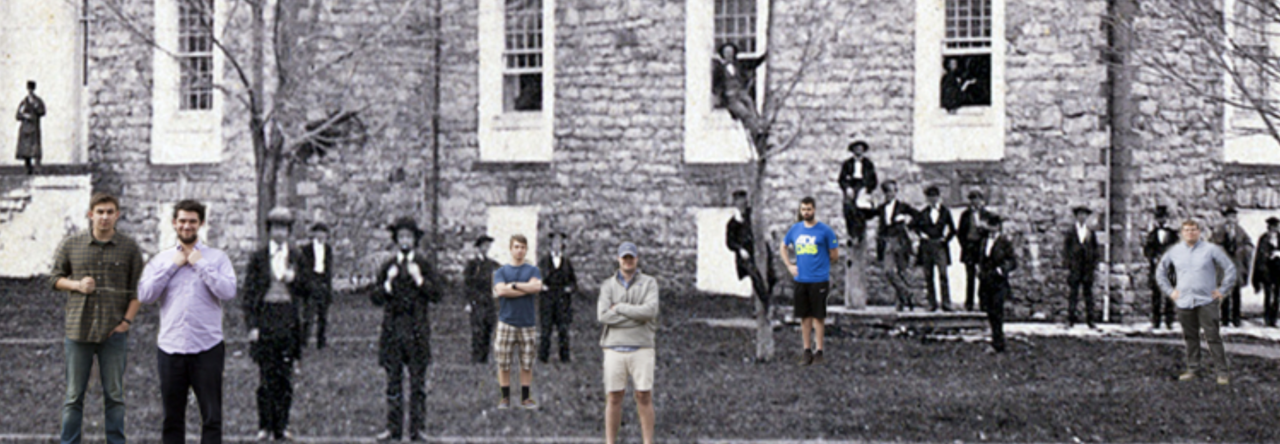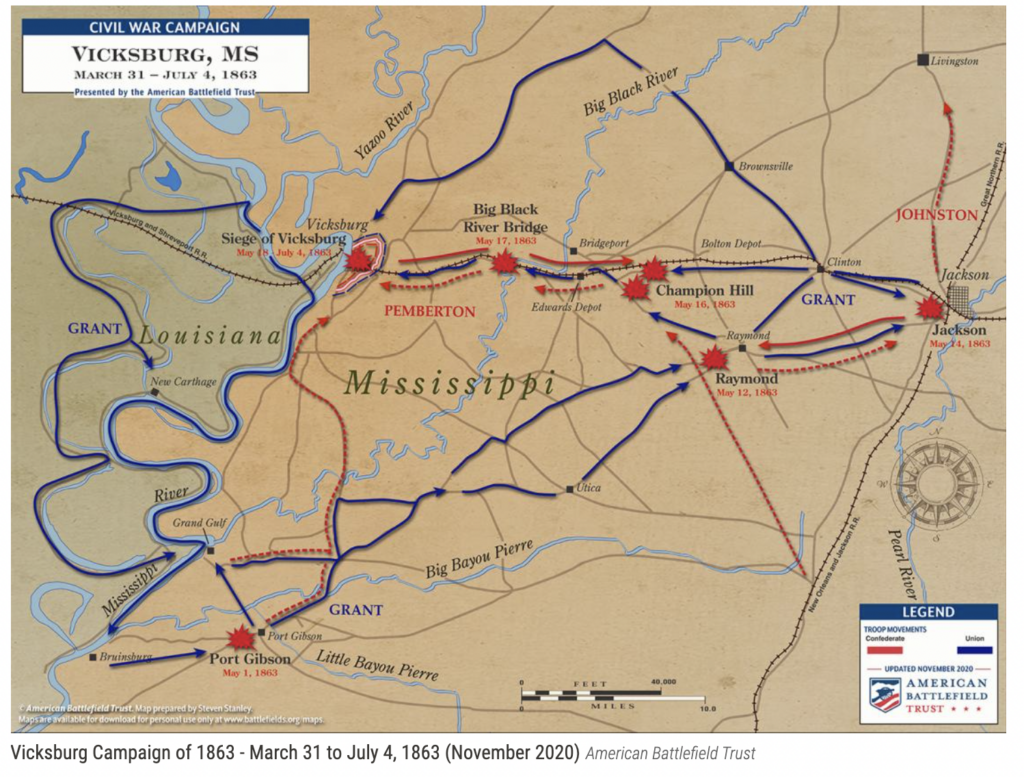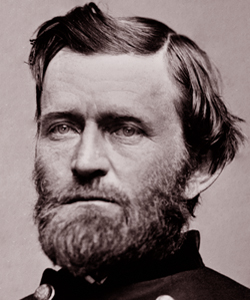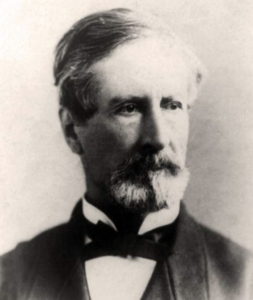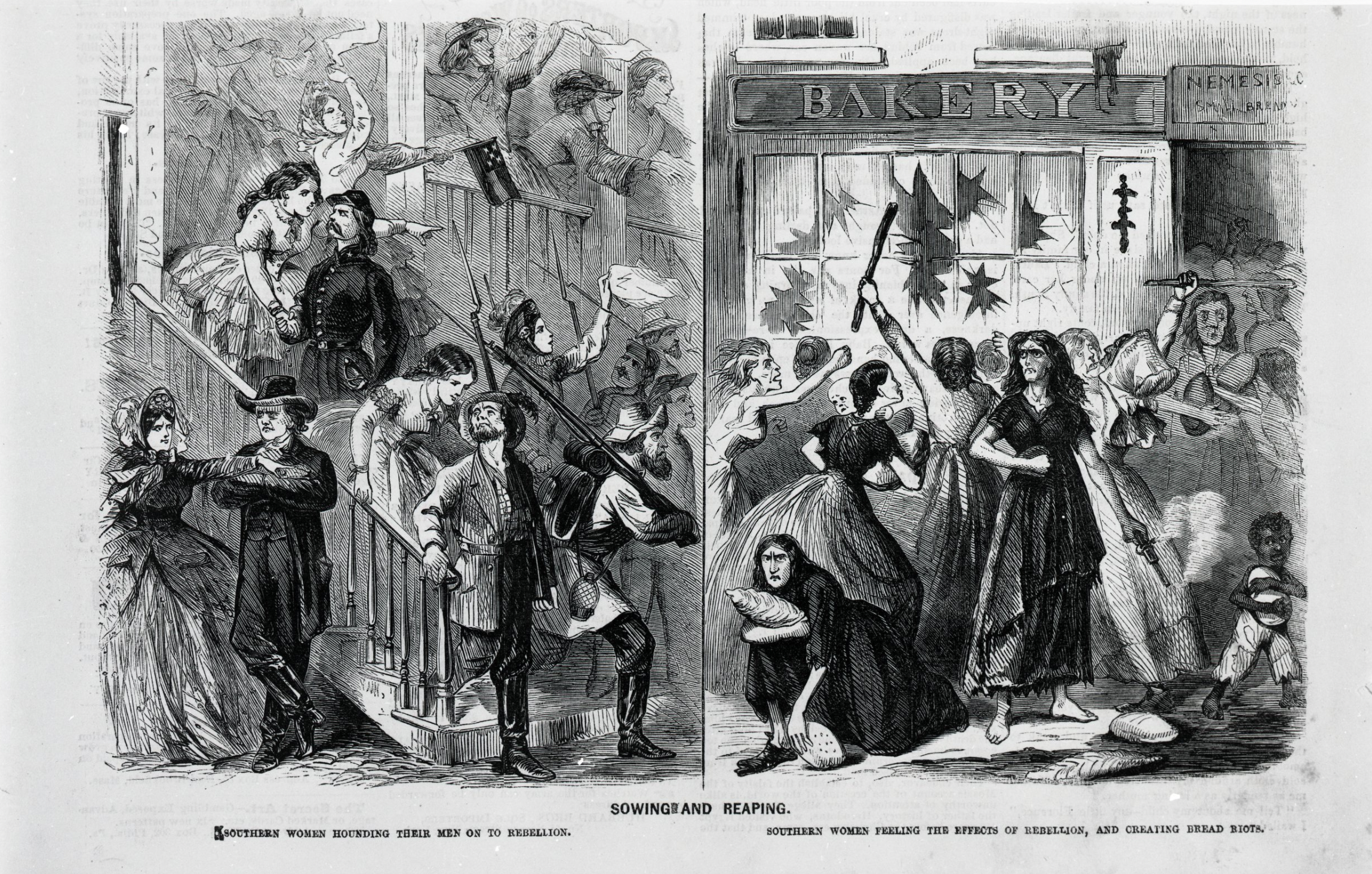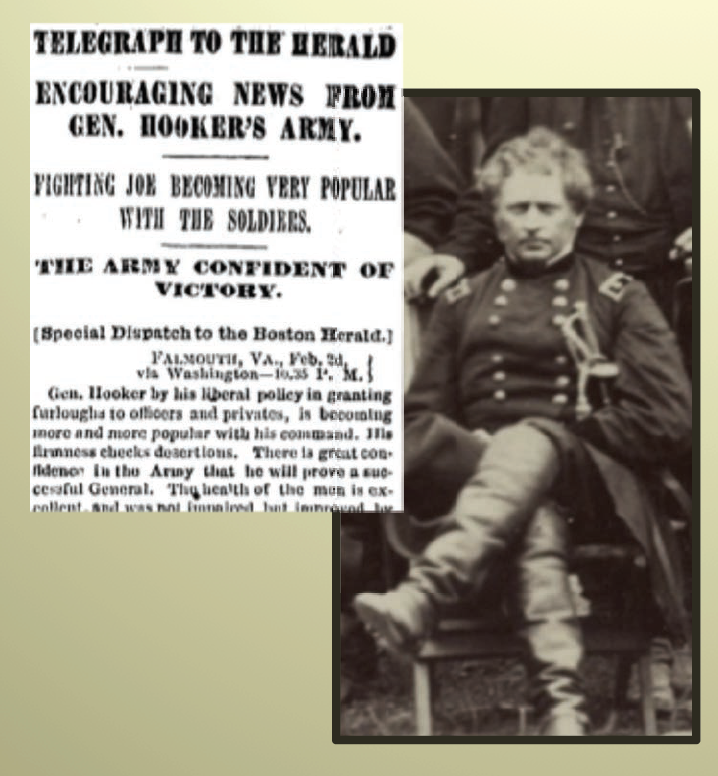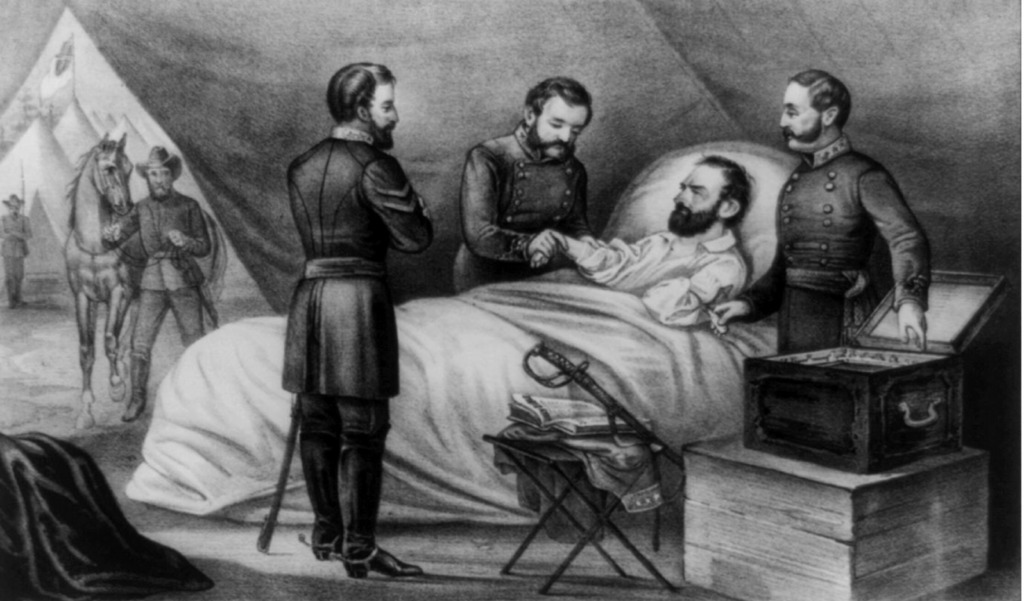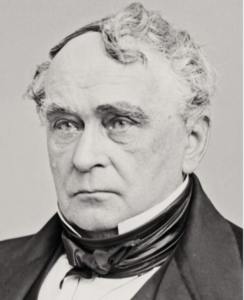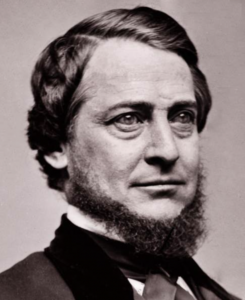Vicksburg Campaign
I do not remember that you and I ever met personally. I write this now as a grateful acknowledgement for the almost inestimable service you have done the country. I wish to say a word further. When you first reached the vicinity of Vicksburg, I thought you should do what you finally did — march the troops across the neck, run the batteries with the transports and thus go below; and I never had any faith, except a general hope that you knew better than I, that the Yazoo-Pass expedition, and the like could succeed. When you got below, and took Port Gibson, Grand Gulf and vicinity, I thought you should go down the river and join Gen. Banks; and when you turned Northward, East of the Big Black, I feared it was a mistake. I now wish to make the personal acknowledgement that you were right and I was wrong. —Abraham Lincoln to Ulysses S. Grant, July 13, 1863
Confederate soldier William Elisha Stoker participated in the Vicksburg campaign. He was disgruntled throughout his service, but especially after this turning point in the war.
Times gets harder with the soldiers Ive got so I just wis this confederacy was toar all to smash and turned bottom [up?]. Is this ware never will close untill the men just quits. –William Elisha Stoker to Elizabeth Stoker, May 22, 1863
Bread Riots
The Richmond riot [of April 1863] was part of a wave of female-led food riots in the Confederacy that spring, beginning with a March riot in Atlanta and followed by mob actions in locales including Salisbury, North Carolina, and Mobile, Alabama. The riots reflected a crisis of subsistence.” (Varon, p. 222)
Estimated Inflation During the Civil War
- 80 percent over four years for the Union vs. 9,000 percent over four years for the Confederacy (McPherson, Battle Cry of Freedom, p. 447)
- Mary Jackson, leader of the Richmond riot, was convicted and sentenced to 5 years in state penitentiary
Chancellorsville (April 30 – May 6, 1863)
Civil Liberties and Laws of War
Toward a national draft, anti-war resistance, and the creation of Union Leagues and Women’s Loyal National Leagues
Must I shoot a simple-minded soldier boy who deserts, while I must not touch a hair of a wiley agitator who induces him to desert? … I think that in such a case, to silence the agitator, and save the boy is not only constitutional, but, withal, a great mercy. —Abraham Lincoln to Erastus Corning, June 12, 1863
